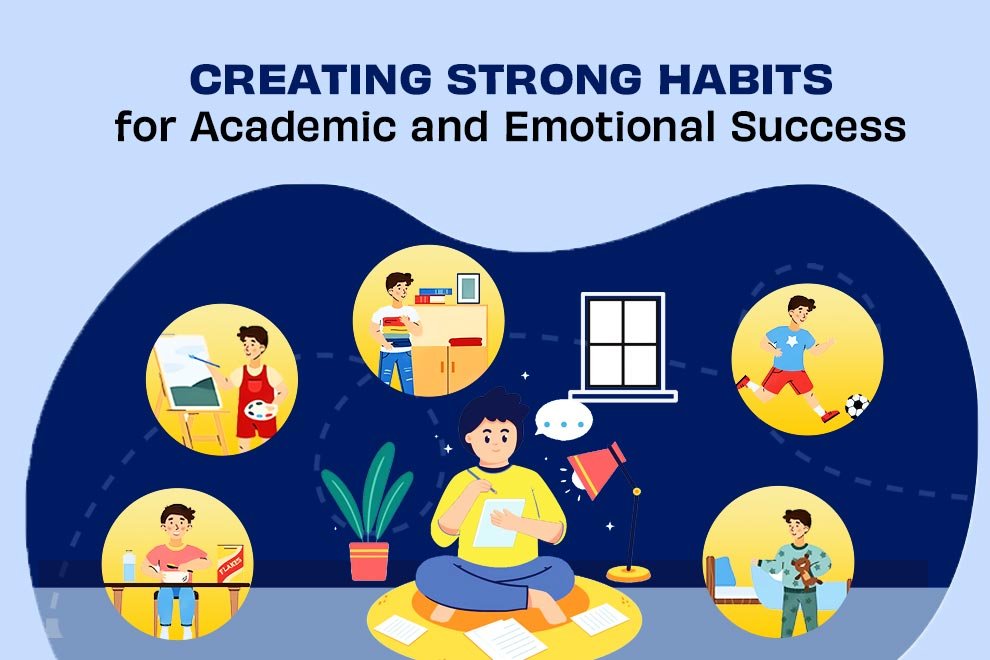Everyday habits are the cornerstone of successful child development in academic and emotional abilities. Far too many households struggle with crazy mornings, night battles, and lackadaisical day-in, day-out routines that frazzle everyone out and have them at their wit’s end. Having set patterns in place educates children about what the day will be like, reduces stress, and leaves time for actual learning. Well-structured routines provide stability and predictability that are necessary for children to establish confidence, independence, and readiness for school. Such habits are the foundation upon which a lifetime of educational and personal success is based.
Understanding the Importance of Daily Routine
Children grow best when they can accurately predict what lies ahead in their daily lives. Structured environments provide developing minds with the freedom to focus energy on acquisition rather than fearing unknown expectations or surprise modifications. Routine-based environments help regulate emotions, reduce behavioural challenges, and create calming environments where development occurs automatically. When kids know the routine of daily activities, they also feel secure and confident in their ability to navigate their world. Predictability is the foundation upon which kids build self-regulatory skills, emotional intelligence, and readiness to learn in school.
Emotional Development Through Routine-Based Environments
Daily routine-rich settings significantly impact children’s emotional well-being and social development. Young children learn to control their own emotions, negotiate transitions, and develop resilience in meeting novel challenges with regular daily routines. Ordinary routines are instructive for children about time and sequence, cause-and-effect, and appropriate behaviour in family or class settings. These patterns generate emotional security so that young children feel safe enough to take reasonable risks in learning contexts. Securely established emotional foundations built with frequent routines directly contribute to school success and social competence throughout childhood and beyond.
Academic Gains of Organised Learning Environments
Children learn best when they feel supported by a structured and consistent environment. It’s not just about what is being taught, but how the space around them helps them focus and grow. Simple routines give kids a sense of security, making it easier for them to concentrate, stay engaged, and remember what they’ve learned. These habits also encourage responsibility, organisation, and time management from an early age. When choosing a school, it’s worth looking at places like Kindergarten Ballarat, where structured routines and supportive environments help children thrive as they move into formal schooling.
Creating Independence Through Established Habits
Daily routines actually foster self-responsibility and independence in children at any age. When children learn expected behaviours and routines, they can manage their own care, belongings, and learning materials independently without adult intervention. Routine structures help children learn to anticipate needs, prepare for changes, and organise their own time successfully. Independence skills are learned incrementally through repeated contact with consistent routines and supportive guidance. Children who learn basic self-management through routine develop the confidence that leads to academic competence and personal development.
Instituting Effective Family Routines
Effective routine institutions start with pinpointing trouble spots in family life and tackling them methodically. Select one troublesome time segment and create clear, workable patterns that all members can adhere to on a regular basis. Morning routines, mealtimes, and bedtime processes provide great opportunities for the establishment of routines. Consistency proves more important than perfection when building new habits and expectations.
Mealtime Routine and Family Bonding
Daily family meals are ideal times for routine development while fostering several areas of development at once. Timely meals assist in regulating children’s internal clocks, promote healthful eating, and provide natural opportunities for conversation. Family mealtime interactions teach social cues, communication styles, and cultural norms through day-to-day interactions. These regular gatherings become bases for relationship development, language learning, and emotional attachment in families. Normal meal habits also enhance physical well-being through routine nutrition timing and attentive eating behaviours.
Adapting Change Within Set Rituals
Routine structures with a degree of flexibility assist children in learning flexibility without sacrificing security and predictability. Life situations inevitably call for modifications in established routines, and children thrive from learning how routines can adapt. Communication regarding changes must be clear so that children can manage disruptions while continuing to feel secure and in control. Temporary changes for one-time events, holidays, or unplanned situations can be made effectively when the foundation of routine remains stable. Maintaining balance demonstrates to children that structure stabilises while enabling needed changes.
Long-Term Effect on Development and Achievement
Children who go through consistent, supportive daily routines in early years build abilities that end up serving them well throughout life. Solid routine foundations lead to improved school performance, emotional control, and social skills in school and into later life. Children develop internal organisation systems facilitating ongoing learning and personal development through these early encounters with structure and predictability. Adults who had positive routine structures while growing up tend to exhibit greater capacity for time management, goal attainment, and stress management. Investment in routine formation in early years pays dividends in every area of life.
Age-Appropriate Routine Development
Each stage of development necessitates different strategies for routine implementation and expectation. Younger children require concrete, simple patterns with present rewards and clear limits to successfully establish routines. Older children are capable of dealing with more complicated sequences, preplanned activities, and responsibility for routine modification and maintenance. Knowledge of developmental ability guarantees that routine expectations align with children’s capacities and ensure success and not frustration. Routines appropriate for each age challenge children optimally while allowing for the assistance needed to develop skills and build confidence.
Managing Common Routine Issues
Implementing routines is usually thwarted by challenges that need to be overcome with patience, innovation, and determination. New pattern resistance tends to diminish as children get used to expectations and begin to enjoy the predictability. Timing, energy levels, and temperaments of the individuals involved all have impacts on routine achievement, and often they will have to make changes to meet family objectives. Problem-solving strategies aim to identify concrete obstacles and develop feasible solutions instead of forgoing routine development altogether. Effective families modify expectations while being consistent with essential routine components.
Building a Foundation for a Lifetime of Success
Developing solid routines early in life provides templates for success that children and adolescents carry through their adult lives. These initial encounters with structure, predictability, and personal responsibility become internalised guidelines for overseeing sophisticated adult responsibilities. Daily routine experiences in childhood promote academic success, career attainment, and positive relationship development later in life. Children who learn fundamental routine skills build confidence, self-regulation skills, and organisational capabilities that benefit them in every aspect of life. Investment in routine skills builds one of the most precious assets parents can give children for future achievement and well-being.
Also Read: Crack the PLAB Exam: Smart Preparation Starts with Academically










